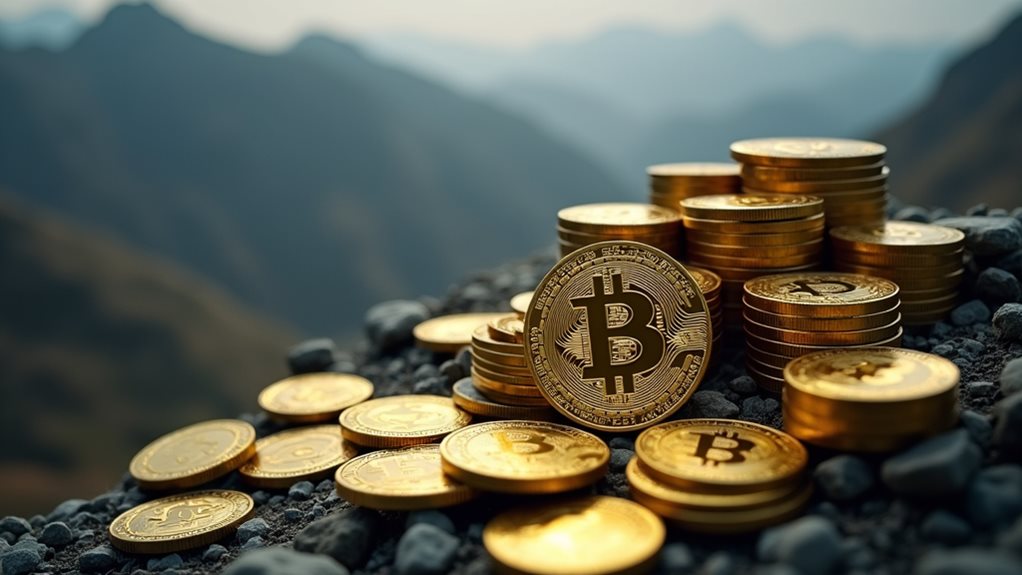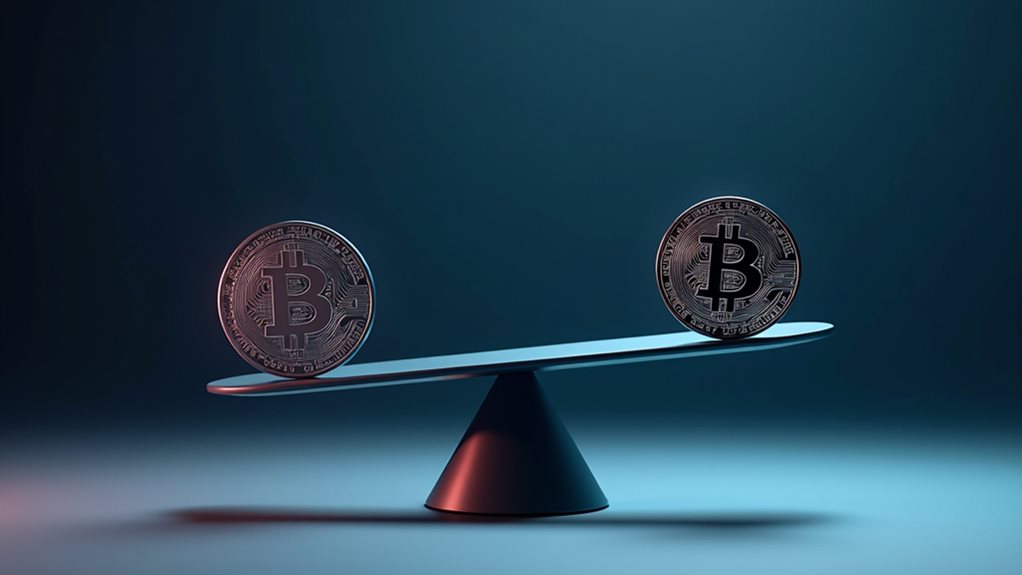China’s sitting on a jaw-dropping $50 billion in seized crypto, and guess what? A bold proposal to stash it as a national reserve is causing absolute chaos. People are losing it over this! With 194,000 BTC in their grip, second only to the US, the debate’s heating up fast. Corruption worries, shady sales via offshore exchanges—yep, it’s a mess. And that 2021 crypto ban? Hilarious loophole city. Stick around, there’s more to uncover.

While, let’s talk about China and its wild crypto mess. Seriously, this is a financial rollercoaster with no seatbelts. In 2023, crypto-linked crimes skyrocketed tenfold to a jaw-dropping 430.7 billion yuan—that’s $59 billion, folks. Authorities raked in 378 billion yuan, about $51.8 billion, in penalties and confiscated assets. A 65% jump over five years. Insane, right?
Local governments are sitting on roughly 15,000 Bitcoin, worth $1.4 billion, while national holdings—mostly from seizures—hit 194,000 BTC, or $16 billion. That puts China second only to the US. One big haul? The PlusToken Ponzi scheme bust in 2019, netting 194,775 BTC. Talk about a digital goldmine. Notably, despite these massive sales of seized cryptocurrencies, Bitcoin has shown remarkable resilience, maintaining stability near $105,000 with only a minor price decline. Recent investigations reveal that dark web profits from drug trafficking contribute significantly to these seized assets.
China’s crypto haul is staggering—194,000 BTC worth $16 billion, second only to the US, with a massive PlusToken bust netting 194,775 BTC. Wild!
Now, here’s the messy part. There’s no clear playbook for handling this crypto stash. It’s a fragmented, opaque disaster. Local governments offload seized coins through private firms like Shenzhen’s Jiafenxiang, often using offshore exchanges. Yeah, that’s despite China’s strict 2021 crypto trading ban. Hypocrisy much? They’re sneaking around in a legal gray zone, converting proceeds to yuan to patch up strained local budgets.
But legal experts are sounding alarms—corruption, misuse, zero transparency. It’s a hot mess clashing with the ban itself. Additionally, the lack of standardized regulations has led to inconsistent disposal practices across different regions inconsistent disposal practices.
So, what’s the fix? A debate’s raging among policymakers, judges, and cops for unified rules. One idea gaining steam: the central government hoards these assets as a long-term national reserve. Think US-style, like Trump’s push for a Bitcoin stockpile. Proponents, including bigwigs like HashKey’s Ru Haiyang and ex-CIC exec Winston Ma, say centralized control maximizes value and matches global trends. Crypto as a strategic resource? Wild, but maybe not dumb.
Other ideas are floating too. Recognize crypto as judicial assets. Standardize disposal nationwide. Let the People’s Bank of China handle it, maybe sell abroad. Or use Hong Kong—where trading’s legal—as a hub for liquidation or even a sovereign fund.
Vetting third-party vendors is on the table too. Why bother? To kill inconsistencies, dodge corruption risks, and handle the insane surge of crypto crime overwhelming old systems. China’s got billions in digital loot—and no clue what to do next. Unreal.









